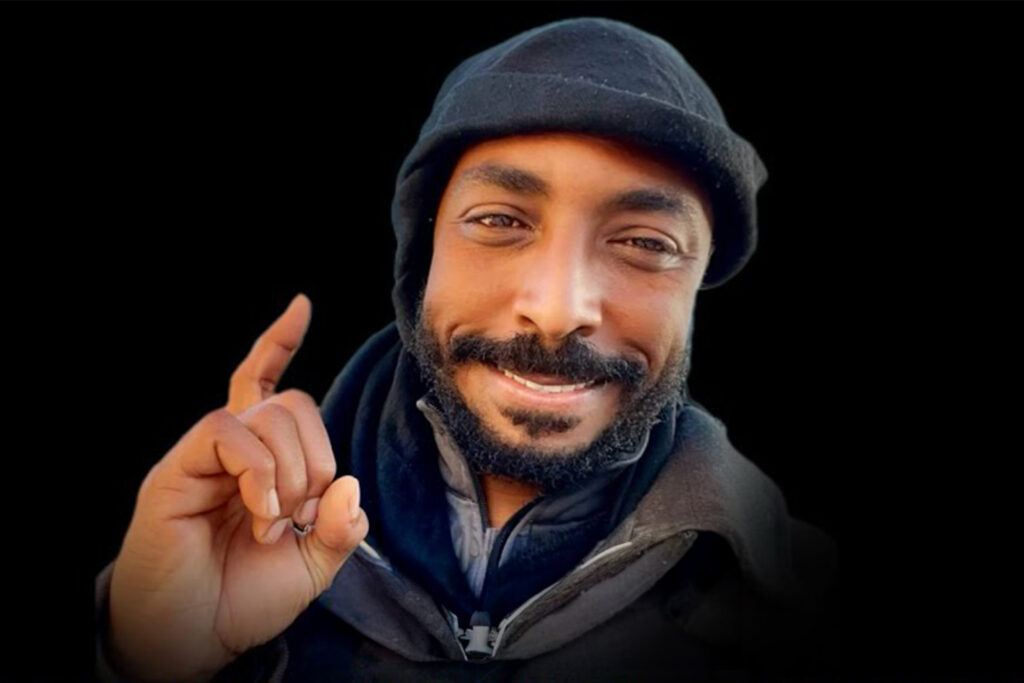10/14/2024–|Last updated: 10/14/202403:19 PM (Mecca time)
Palestinian vocalist Hamza Abu Qaynis – who was known as “the inheritor of the martyrs” – was martyred after being seriously injured as a result of an Israeli bombing of his house in the northern Gaza Strip.
Abu Qaynis had fled to this house after he was forced to leave the Yarmouk neighborhood, which had witnessed widespread destruction since the start of the Israeli war on Gaza in October 2023.
Despite his injury, his journey in mourning the martyrs did not stop until his death, as his voice was present on occasions that mourned the victims of the war and remembered their suffering.
According to the Palestinian press, the martyrdom of Abu Qaynis was confirmed days after the bombing, so he joined the rest of his family members who were martyred during the war, including his father and younger brother.
The news of his passing was announced on social media platforms by his family members and friends.
As the news of Hamza’s martyrdom spread, social media platforms witnessed a wide wave of condolences and interaction, and many journalists and activists expressed their sadness at the loss of this prominent figure in the world of religious and national chanting.
Goodbye, my love
Goodbye, Misk Fayeh
The martyrdom of vocalist Hamza Abu Qaynis
One of the most famous singers in Gaza
In this clip, the martyr Hamza jokes with us, me and the beloved martyr Ismail Al-Ghoul, and promises us to sing… To God we belong and to Him we shall return. pic.twitter.com/jE5jqEH9Il– Anas Al-Sharif (@AnasAlSharif0) October 13, 2024
We brought to you the news of the martyrdom of the resistance vocalist, the one with the bullet that never disappoints – Hamza Abu Qanis..
How do we mourn those who mourned the martyrs?
How can we mourn you, Hamza, as you mourned the martyrs?
To the heaven of eternity, Hamza.. pic.twitter.com/MfOidy2ukg
– Al-Hakeem (@Hakeam_ps) October 13, 2024
Abu Qainis is considered one of the most famous singers in Gaza, as he was famous for his ability to lament the martyrs with songs that carry a religious and patriotic character. Among his most famous works are “Goodbye, Misk Fayeh,” “Shi’u,” and “Love of the Camp.”
His career began at an early age when he was still in the fourth grade of primary school, when he began participating in school radio, before moving to audio studios to begin recording his works.

